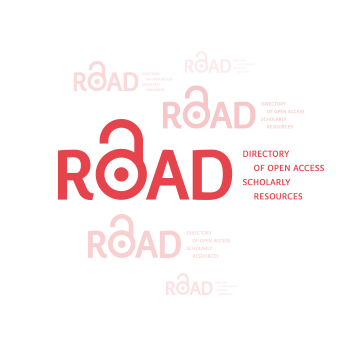El Uso de la Inteligencia Artificial para la Personalización del Aprendizaje en Contextos Inclusivos
Resumen
El artículo científico explora el impacto de la inteligencia artificial (IA) en la personalización del aprendizaje en contextos educativos inclusivos, respondiendo a la pregunta general: ¿Cuál es el aporte de la IA para la personalización del aprendizaje en contextos escolares inclusivos?. Destaca cómo técnicas como el aprendizaje automático y los sistemas tutoriales inteligentes adaptan estrategias educativas a las necesidades individuales, mejorando la experiencia y resultados de aprendizaje. Se abordan desafíos éticos, como la privacidad y la equidad, y se enfatiza la necesidad de integrar la IA de manera ética y pedagógica. La investigación concluye que la IA puede transformar la educación al fomentar la equidad y la inclusión, siempre que se implemente con responsabilidad y enfoque humano.
Descargas
Citas
Altares-López, S., Bengochea-Guevara, J. M., Ranz, C., Montes, H., & Ribeiro, Á. (2024). Generative AI: The power of the new education. In S. Altares-López, J. M. Bengochea-Guevara, C. Ranz, H. Montes, & Á. Ribeiro, arXiv (Cornell University). Cornell University. https://doi.org/10.48550/arxiv.2405.13487
Arslan, Ş. Ş. (2024). Artificial Human Intelligence: The role of Humans in the Development of Next Generation AI. In Ş. Ş. Arslan, arXiv (Cornell University). Cornell University.
https://doi.org/10.48550/arxiv.2409.16001
Bhutoria, A. (2022). Personalized education and Artificial Intelligence in the United States, China, and India: A systematic review using a Human-In-The-Loop model [Review of Personalized education and Artificial Intelligence in the United States, China, and India: A systematic review using a Human-In-The-Loop model]. Computers and Education Artificial Intelligence, 3, 100068. Elsevier BV. https://doi.org/10.1016/j.caeai.2022.100068
Calatayud, V. G., Espinosa, M. P. P., & Vila, R. R. (2021). Artificial Intelligence for Student Assessment: A Systematic Review [Review of Artificial Intelligence for Student Assessment: A Systematic Review]. Applied Sciences, 11(12), 5467. Multidisciplinary Digital Publishing Institute. https://doi.org/10.3390/app11125467
Campo, E., Saneiro, M., Montecelo, M. F., Raffenne, E., Ascaso, A. R., Santos, O. C., & Boticario, J. G. (2012). APOYO ADAPTATIVO BASADO EN IMS-LD Y ESTRATEGIAS PSICO-EDUCATIVAS PARA LA FAMILIARIZACIÓN DE ESTUDIANTES CON DISCAPACIDAD CON SU ENTORNO VIRTUAL DE APRENDIZAJE. In E. Campo, M. Saneiro, M. F. Montecelo, E. Raffenne, A. R. Ascaso, O. C. Santos, & J. G. Boticario, RIED Revista Iberoamericana de Educación a Distancia (Vol. 13, Issue 2). National University of Distance Education. https://doi.org/10.5944/ried.2.13.821
Córdoba, E.F., & García-Umaña, A. (2017). Estrategias lúdicas para el fomento de una cultura Educativa Inclusiva. Revista Inclusiones, 4(4), 44-61.
Córdoba, E.F., Lara, F. & García-Umaña, A. (2017). El juego como estrategia lúdica para la educación inclusiva del buen vivir. ENSAYOS, Revista de la Facultad de Educación de Albacete, 32(1). Recuperado de: http://www.revista.uclm.es/index.php/ensayos
Falco, M. (2017). Reconsiderando las prácticas educativas: TICs en el proceso de enseñanza-aprendizaje / RETHINKING EDUCATIONAL PRACTICES: ICTs IN THE TEACHING-LEARNING PROCESS. In M. Falco, Tendencias pedagógicas/Tendencias pedagógicas (Vol. 29, Issue 2017, p. 59). Autonomous University of Madrid.
https://doi.org/10.15366/tp2017.29.002
Garcia, J., & Wilson-Kennedy, Z. S. (2024). Promoting equity and addressing concerns in teaching and learning with artificial intelligence. In J. Garcia & Z. S. Wilson-Kennedy, Frontiers in Education (Vol. 9). Frontiers Media. https://doi.org/10.3389/feduc.2024.1487882
García‐Martínez, I., Batanero, J. M. F., Cerero, J. F., & León, S. P. (2023). Analysing the Impact of Artificial Intelligence and Computational Sciences on Student Performance: Systematic Review and Meta-analysis. In I. García‐Martínez, J. M. F. Batanero, J. F. Cerero, & S. P. León, Journal of New Approaches in Educational Research (Vol. 12, Issue 1, p. 171). University of Alicante. https://doi.org/10.7821/naer.2023.1.1240
García-Peña, V. R., Mora-Marcillo, A. B., & Ávila-Ramírez, J. A. (2020). La inteligencia artificial en la educación. In V. R. García-Peña, A. B. Mora-Marcillo, & J. A. Ávila-Ramírez, Dominio de las Ciencias (Vol. 6, Issue 3, p. 648). Manta Polo de Capacitación; Investigación y Publicación (POCAIP). https://doi.org/10.23857/dc.v6i3.1421
García-Umaña, A., & Tirado-Morueta, R. (2018). Digital Media Behavior of School Students: Abusive Use of the Internet. Journal of New Approaches in Educational Research, 7(2), 140-147. https://doi.org/10.7821/naer.2018.7.284
González, C. S. G. (2023). El impacto de la inteligencia artificial en la educación: transformación de la forma de enseñar y de aprender. In C. S. G. González, Qurriculum Revista de Teoría Investigación y Práctica Educativa (Issue 36, p. 51). University of La Laguna. https://doi.org/10.25145/j.qurricul.2023.36.03
Guerrero, I., & Kalman, J. (2010). La inserción de la tecnología en el aula: estabilidad y procesos instituyentes en la práctica docente. In I. Guerrero & J. Kalman, Revista Brasileira de Educação (Vol. 15, Issue 44, p. 213). National Association of Postgraduate Research in Education. https://doi.org/10.1590/s1413-24782010000200002
Hengxuan, O., Denton, G., & Gürsoy, D. (2020). Artificially intelligent device use in service delivery: a systematic review, synthesis, and research agenda. In O. Hengxuan, G. Denton, & D. Gürsoy, Journal of Hospitality Marketing & Management (Vol. 29, Issue 7, p. 757). Taylor & Francis. https://doi.org/10.1080/19368623.2020.1721394
Hernández, F. S., & Prats, G. M. (2022). Aportes de ingeniería en inteligencia artificial aplicada en la educación. In F. S. Hernández & G. M. Prats, 3C TIC Cuadernos de desarrollo aplicados a las TIC (Vol. 11, Issue 1, p. 133). Área de Innovación y Desarrollo, S.L.
https://doi.org/10.17993/3ctic.2022.111.133-143
Innovaciones digitales para la educación en América Latina. (2024).
Jaquenod, G. A. (1986). Robotica e inteligencia artificial. In G. A. Jaquenod, Revista telegráfica electrónica (Vol. 75, Issue 879, p. 1866). https://biblat.unam.mx/ca/revista/revista-telegrafica-electronica/articulo/robotica-e-inteligencia-artificial
Kamalov, F., Calonge, D. S., & Gurrib, I. (2023). New Era of Artificial Intelligence in Education: Towards a Sustainable Multifaceted Revolution. In F. Kamalov, D. S. Calonge, & I. Gurrib, Sustainability (Vol. 15, Issue 16, p. 12451). Multidisciplinary Digital Publishing Institute.
https://doi.org/10.3390/su151612451
Kazimzade, G., Patzer, Y., & Pinkwart, N. (2019). Artificial Intelligence in Education Meets Inclusive Educational Technology—The Technical State-of-the-Art and Possible Directions. In G. Kazimzade, Y. Patzer, & N. Pinkwart, Perspectives on rethinking and reforming education (p. 61). Springer Nature. https://doi.org/10.1007/978-981-13-8161-4_4
Blanchar Añez, F. J. (2024). Escuela Y Currículo: Propuesta Educativa Crítica Y Emancipadora Para La Formación Rural En Turismo Cultural Autosustentable . Estudios Y Perspectivas Revista Científica Y Académica , 4(2), 310–316. https://doi.org/10.61384/r.c.a.v4i2.223
Garrochamba Peñafiel , B. D. (2024). Factores de Riesgo Asociados a Diabetes Mellitus Tipo 2. Revista Científica De Salud Y Desarrollo Humano, 5(2), 101–115. https://doi.org/10.61368/r.s.d.h.v5i2.123
Cuello Brioso, N., & Sánchez, E. (2024). Barreras para la Inclusión de Estudiantes con Necesidades Educativas. Emergentes - Revista Científica, 4(1), 115–122. https://doi.org/10.60112/erc.v4i1.94
Fernández, C. (2023). Heritage Sustainability: The Symbiosis between Tourism and the Preservation of Archaeological Sites in Ecuador. Revista Veritas De Difusão Científica, 4(1), 11–142. https://doi.org/10.61616/rvdc.v4i1.40
Martínez, O., Aranda , R., Barreto , E., Fanego , J., Fernández , A., López , J., Medina , J., Meza , M., Muñoz , D., & Urbieta , J. (2024). Los tipos de discriminación laboral en las ciudades de Capiatá y San Lorenzo. Arandu UTIC, 11(1), 77–95. Recuperado a partir de https://www.uticvirtual.edu.py/revista.ojs/index.php/revistas/article/view/179
v, H., & Quispe Coca, R. A. (2024). Tecno Bio Gas. Horizonte Académico, 4(4), 17–23. Recuperado a partir de https://horizonteacademico.org/index.php/horizonte/article/view/14
Da Silva Santos , F., & López Vargas , R. (2020). Efecto del Estrés en la Función Inmune en Pacientes con Enfermedades Autoinmunes: una Revisión de Estudios Latinoamericanos. Revista Científica De Salud Y Desarrollo Humano, 1(1), 46–59. https://doi.org/10.61368/r.s.d.h.v1i1.9
Lowry, OliverH., Rosebrough, NiraJ., Farr, A., & Randall, RoseJ. (1951). PROTEIN MEASUREMENT WITH THE FOLIN PHENOL REAGENT. In OliverH. Lowry, NiraJ. Rosebrough, A. Farr, & RoseJ. Randall, Journal of Biological Chemistry (Vol. 193, Issue 1, p. 265). Elsevier BV. https://doi.org/10.1016/s0021-9258(19)52451-6
Luchini, C., Pea, A., & Scarpa, A. (2021). Artificial intelligence in oncology: current applications and future perspectives [Review of Artificial intelligence in oncology: current applications and future perspectives]. British Journal of Cancer, 126(1), 4. Springer Nature.
https://doi.org/10.1038/s41416-021-01633-1
Maghsudi, S., Lan, A. S., Xu, J., & Schaar, M. van der. (2021). Personalized Education in the Artificial Intelligence Era: What to Expect Next. In S. Maghsudi, A. S. Lan, J. Xu, & M. van der Schaar, IEEE Signal Processing Magazine (Vol. 38, Issue 3, p. 37). Institute of Electrical and Electronics Engineers. https://doi.org/10.1109/msp.2021.3055032
Mántaras, R. L. de. (1987). Artificial intelligence activities in Spain. In R. L. de Mántaras, International Journal of Intelligent Systems (Vol. 2, Issue 4, p. 353). Wiley.
https://doi.org/10.1002/int.4550020404
Mello, R. F., Freitas, E., Pereira, F. D., Cabral, L., Tedesco, P., & Ramalho, G. (2023). Education in the age of Generative AI: Context and Recent Developments. In R. F. Mello, E. Freitas, F. D. Pereira, L. Cabral, P. Tedesco, & G. Ramalho, arXiv (Cornell University). Cornell University. https://doi.org/10.48550/arxiv.2309.12332
Mohammed, P., & Watson, E. (2019). Towards Inclusive Education in the Age of Artificial Intelligence: Perspectives, Challenges, and Opportunities. In P. Mohammed & E. Watson, Perspectives on rethinking and reforming education (p. 17). Springer Nature.
https://doi.org/10.1007/978-981-13-8161-4_2
Quintana, M. G. B., & Fernández, S. M. (2015). A pedagogical model to develop teaching skills. The collaborative learning experience in the Immersive Virtual World TYMMI. In M. G. B. Quintana & S. M. Fernández, Computers in Human Behavior (Vol. 51, p. 594). Elsevier BV. https://doi.org/10.1016/j.chb.2015.03.016
Regmi, K. D. (2024). The rise of learning technology in an unequal world: potentials and limitations in enhancing lifelong learning. In K. D. Regmi, International Review of Education (Vol. 70, Issue 3, p. 433). Springer Science+Business Media.
https://doi.org/10.1007/s11159-023-10058-2
Rodríguez, M. N., Arredondo, A. G., & Arámbula, N. S. G. (2019). La integración tecnológica en el aula, significaciones desde estudiantes de educación secundaria. In M. N. Rodríguez, A. G. Arredondo, & N. S. G. Arámbula, 3C TIC Cuadernos de desarrollo aplicados a las TIC (Vol. 8, Issue 2, p. 70). Área de Innovación y Desarrollo, S.L.
https://doi.org/10.17993/3ctic.2019.82.70-83
Silvestre, E. R. R., & Claros, M. M. P. (2023). El papel de la tecnología para la mejora de la calidad educativa. In E. R. R. Silvestre & M. M. P. Claros, Ciencia Latina Revista Científica Multidisciplinar (Vol. 7, Issue 3, p. 1018). Latin American Association for the Advancement of Sciences. https://doi.org/10.37811/cl_rcm.v7i3.6245
Varnosfaderani, S. M., & Forouzanfar, M. (2024). The Role of AI in Hospitals and Clinics: Transforming Healthcare in the 21st Century. In S. M. Varnosfaderani & M. Forouzanfar, Bioengineering (Vol. 11, Issue 4, p. 337). Multidisciplinary Digital Publishing Institute.
https://doi.org/10.3390/bioengineering11040337
Wu, S., Cao, Y., Cui, J., Li, R., Qian, H., Jiang, B., & Zhang, W. (2024). A Comprehensive Exploration of Personalized Learning in Smart Education: From Student Modeling to Personalized Recommendations. In S. Wu, Y. Cao, J. Cui, R. Li, H. Qian, B. Jiang, & W. Zhang, arXiv (Cornell University). Cornell University.
https://doi.org/10.48550/arxiv.2402.01666
Zhang, Z. J. (2014). Influence of Modern Technology on the Educational System. In Z. J. Zhang, Advanced materials research (Vol. 1030, p. 2746). Trans Tech Publications.
https://doi.org/10.4028/www.scientific.net/amr.1030-1032.2746
Derechos de autor 2025 María del Consuelo Cocha Millingalle , Ana Lucía Oleas Núñez , Meneses Pillajo Mayra Elizabeth , Diego Jesús Naveda Bonilla , Luisa Rosa Zhunio Suin

Esta obra está bajo licencia internacional Creative Commons Reconocimiento 4.0.













.png)




















.png)
1.png)


